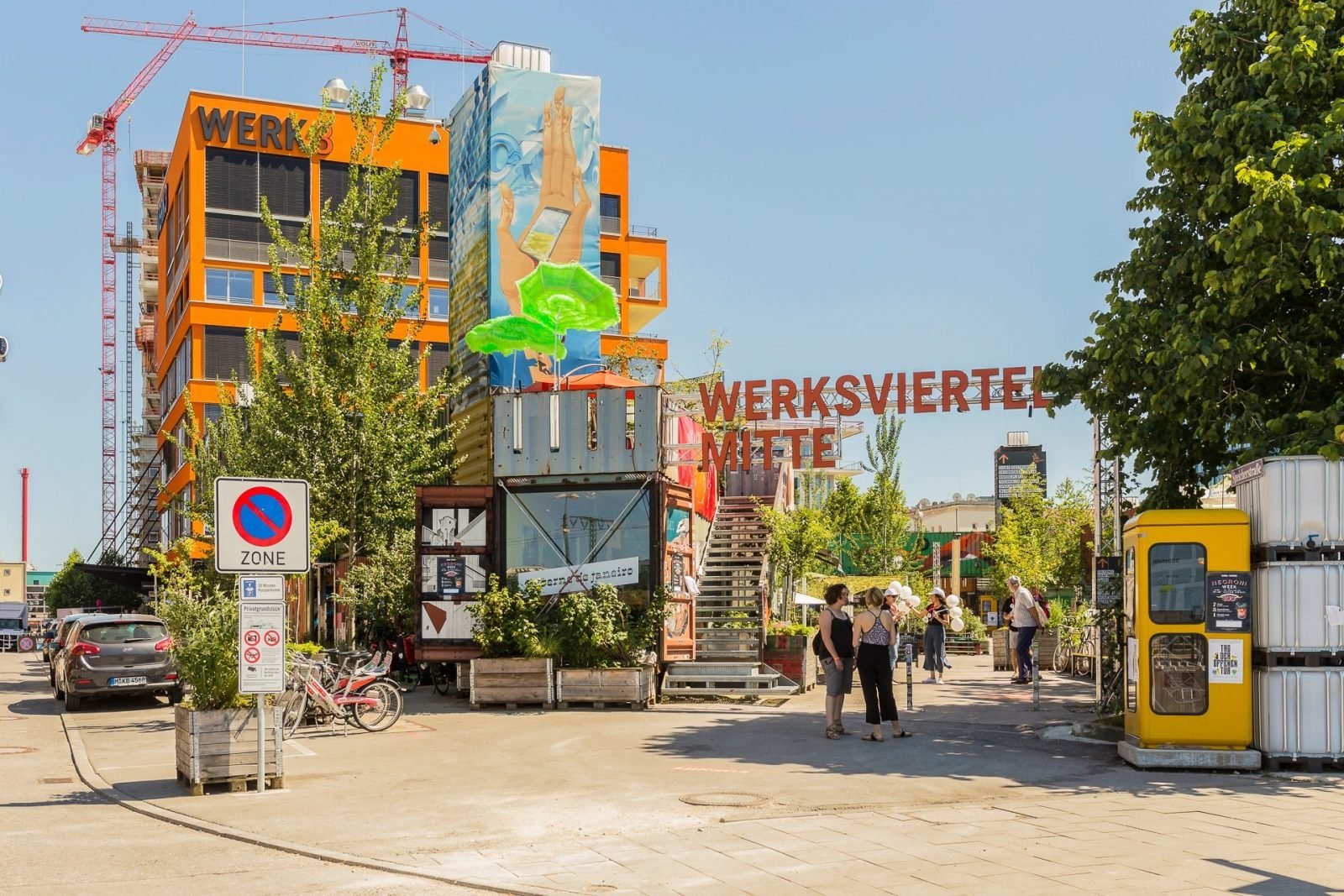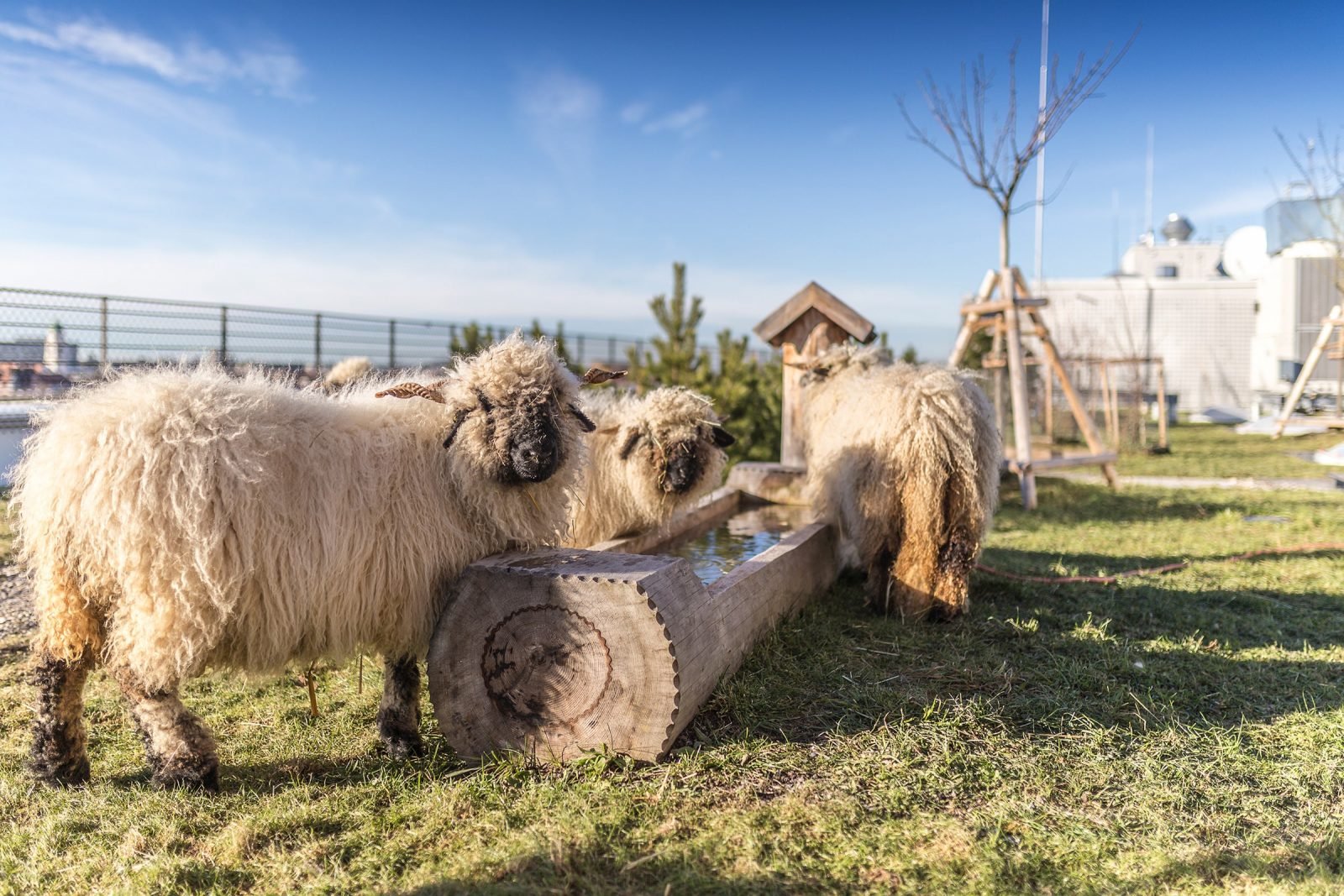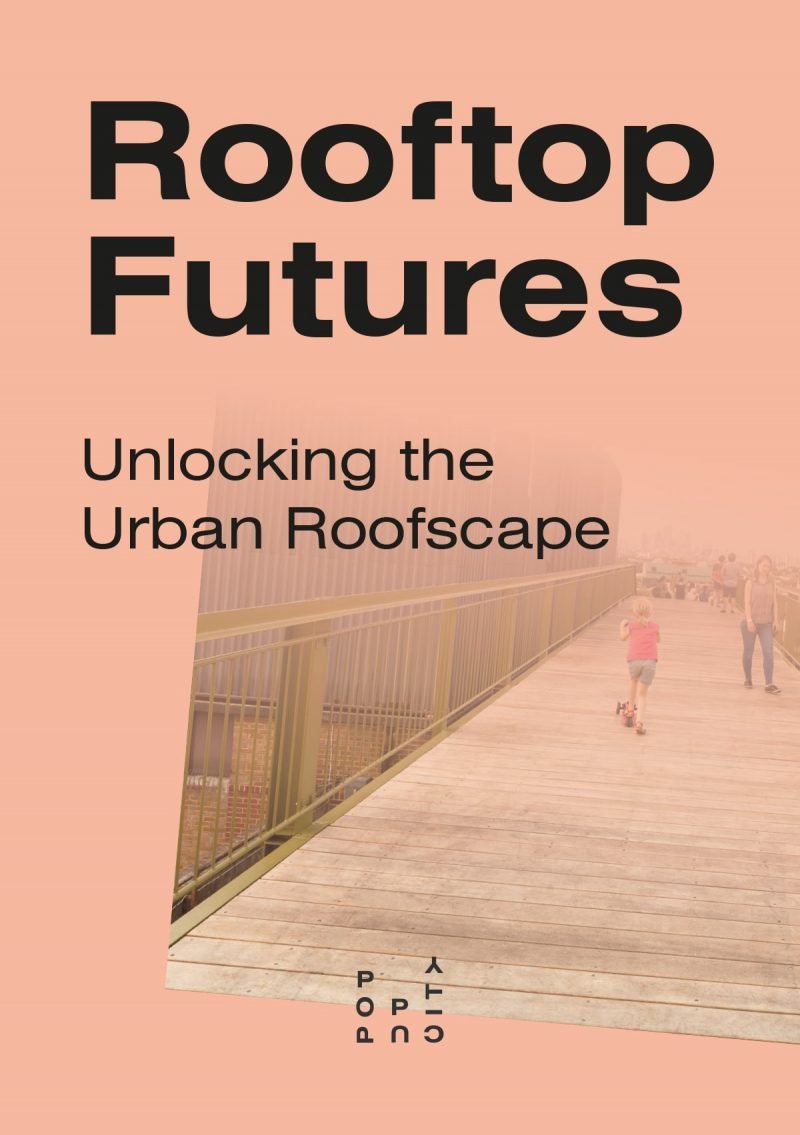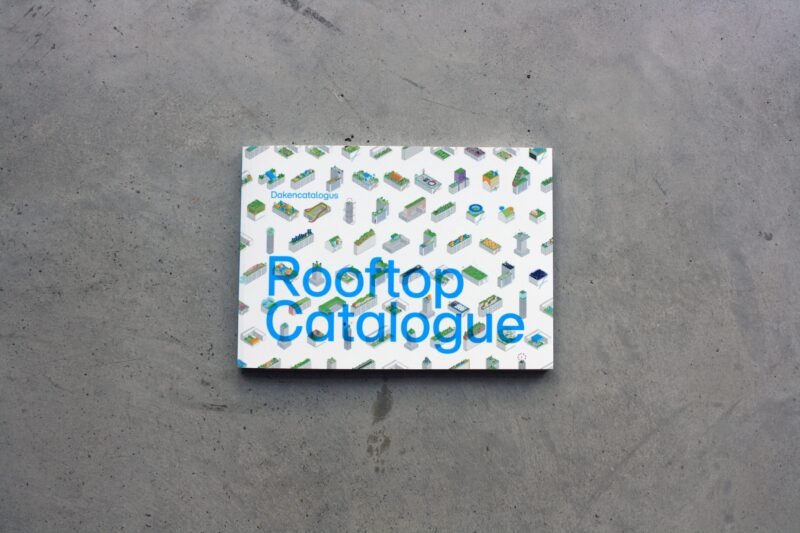This Building’s Rooftop Is Home to Eight Sheep

In the centre of Munich, Germany, startups and creatives have been given a new home in the so-called Werksviertel. But not only humans are working and thriving there, as a small herd of rooftop sheep is also here to stay.
The former industrial area has been transformed into a vibrant place for testing new businesses and ideas. One of them is making innovative use of the 2,500 square meters rooftop landscape. Besides solar panels for harvesting renewable energy, flowers, herbs and even pear trees have also been planted.

The orange building hosts companies from the creative sector, a craft supplier and various restaurants, but its rooftop is home to a small herd of Valais Blacknose sheep. This breed originates from the region of Valais in the Swiss mountains, so being on a sixty-metre-high rooftop landscape just feels natural to them. If you might wonder how they got up there, the pictures give proof — they, of course, took the elevator.

The eight sheep are living on the urban alp all year round, being watched by both a live stream camera and their shepherd, Nikolas Fricke. When he is not taking care of his sheep, Fricke is also working as sustainability manager of the Werksviertel area. Another rooftop that he is in charge of serves as an insect biotope, while on another you can find bunnies and chickens.

The rooftop is generally not open to the public for the sake of the animals’ well-being. If you want to plan a visit to this lively rooftop-scape, you need to book a special tour. Schools in and around Munich can apply for an out-of-classroom lecture, where the children get to experience the animals and learn about sustainability.
With this urban alp, the initiators want to show a living example of how rooftops can function as a green ecosystem and thereby support the sustainable future development of our cities.




